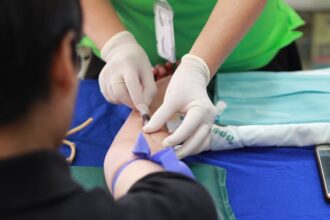A new study from UC San Francisco has revealed that psychotherapy sessions involving caregivers could help prevent serious diseases later in life for young children who have experienced significant trauma. While previous research demonstrated the psychological benefits of dyadic, child-parent trauma treatment lasting up to nine years, this study marks the first time a biological benefit has been identified. Researchers focused on a biomarker termed “age acceleration,” which measures how fast a person’s body is ageing relative to their chronological age. This “epigenetic clock” runs faster for individuals exposed to early childhood trauma, increasing their risk for diseases like heart disease, cancer, obesity, and asthma in adulthood.
The study examined two groups of Bay Area children aged 2 to 6 who had undergone traumatic experiences. Both groups showed similar rates of biological age acceleration at the start of the study. However, one group received up to 20 weekly sessions of Child-Parent Psychotherapy (CPP), a therapeutic programme developed by Dr Alicia Lieberman, director of UCSF’s Child Trauma Research Program. The other group did not receive this therapy. The results were notable: the 45 children who participated in CPP therapy experienced less age acceleration than the 110 children who did not. Although the differences were modest, they are still significant. As Dr Nicole Bush, senior author of the study, explained, even small biological changes in early childhood can lead to substantial differences in health outcomes later in life.
The majority of children in the treatment group (over 80%) and two-thirds of the comparison group were Latinx, an essential aspect since families of colour and low-income households are more frequently exposed to trauma than white families with higher incomes yet are often underrepresented in medical research. Dr Lieberman highlighted that the children in this study had experienced higher levels of trauma than is typical for such research, which adds weight to the findings. These children had encountered severe traumas, such as the loss of a parent, maltreatment, or exposure to community violence. On average, the children had experienced five traumatic events before turning six. This is particularly significant as previous research shows that experiencing four or more traumatic events before the age of 18 increases the risk of developing one of the ten leading causes of death as an adult.
The children’s parents had also endured significant trauma, averaging 13 traumatic events. This history of trauma can make it more difficult for parents to regulate their emotions and actions in response to their children’s challenging behaviours, Dr Lieberman explained. In CPP, therapists incorporate therapeutic play to help children process emotions related to their trauma while also helping parents understand the connection between their children’s behaviours and their past experiences. Additionally, CPP aims to strengthen the parent-child bond by encouraging positive social interactions.
“When both the parent and child have experienced trauma, it intensifies the trauma’s impact,” Lieberman explained. “Our approach focuses on healing the relationship between the parent and child, as well as addressing their trauma in therapy sessions together. Relationships are the cornerstone of health, beginning in early childhood.” Dr Allie Sullivan, co-author of the study, added that many parents feel powerless when their children are exposed to trauma, but this study offers reassurance. “Parents have the capacity and strength to protect their children from adversity,” she said.
The researchers stressed the importance of early intervention, particularly before age five, when the brain undergoes its most rapid development. Early interventions can have a lasting impact on both mental and physical health. Recognising this, California’s Department of Health Care Services has introduced benefits to support family therapy and dyadic care for young Medi-Cal patients, beginning at birth. Hospitals like Zuckerberg San Francisco General have been at the forefront of providing this care and advising medical practices across the state on how to offer and be reimbursed.
Ultimately, the researchers hope that this study underscores the value of therapy-based approaches to treating family trauma, shifting away from an over-reliance on medication. Dr Bush highlighted the broader implications, noting, “Bringing families together, acknowledging the trauma, and fostering an environment of emotional safety and healing can lead to biological repair with the potential to benefit both mental and physical health across the lifespan. We hope policymakers and practitioners take notice of this.”
More information: Alexandra D. W. Sullivan et al, Intervening After Trauma: Child–Parent Psychotherapy Treatment Is Associated With Lower Pediatric Epigenetic Age Acceleration, Psychological Science. DOI: 10.1177/09567976241260247
Journal information: Psychological Science Provided by University of California – San Francisco








